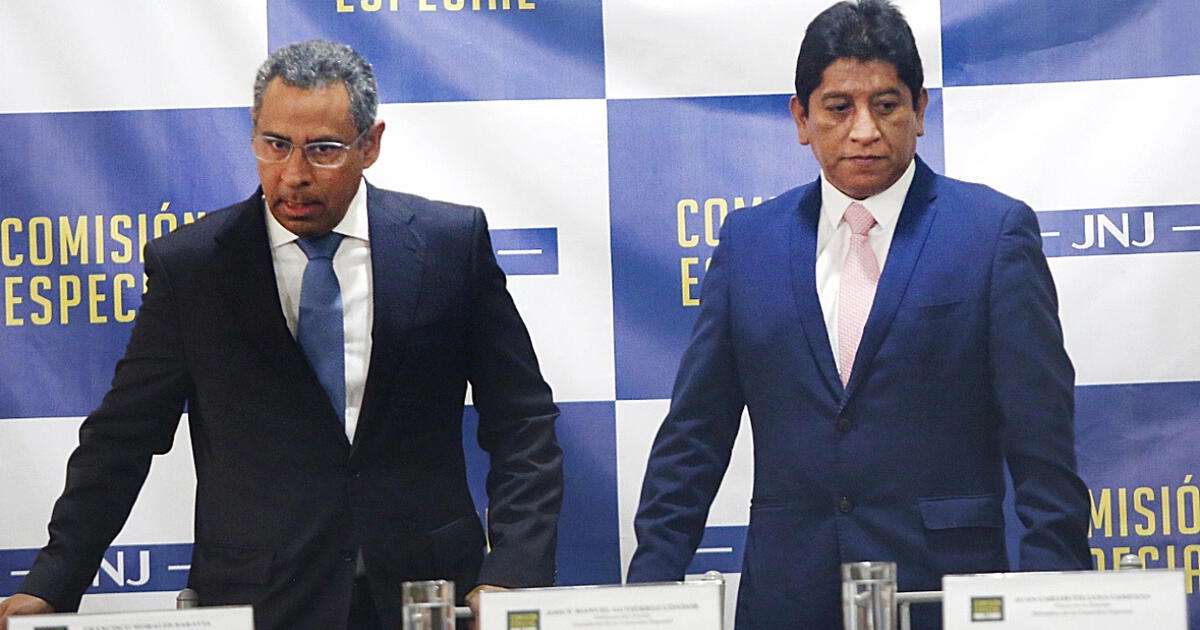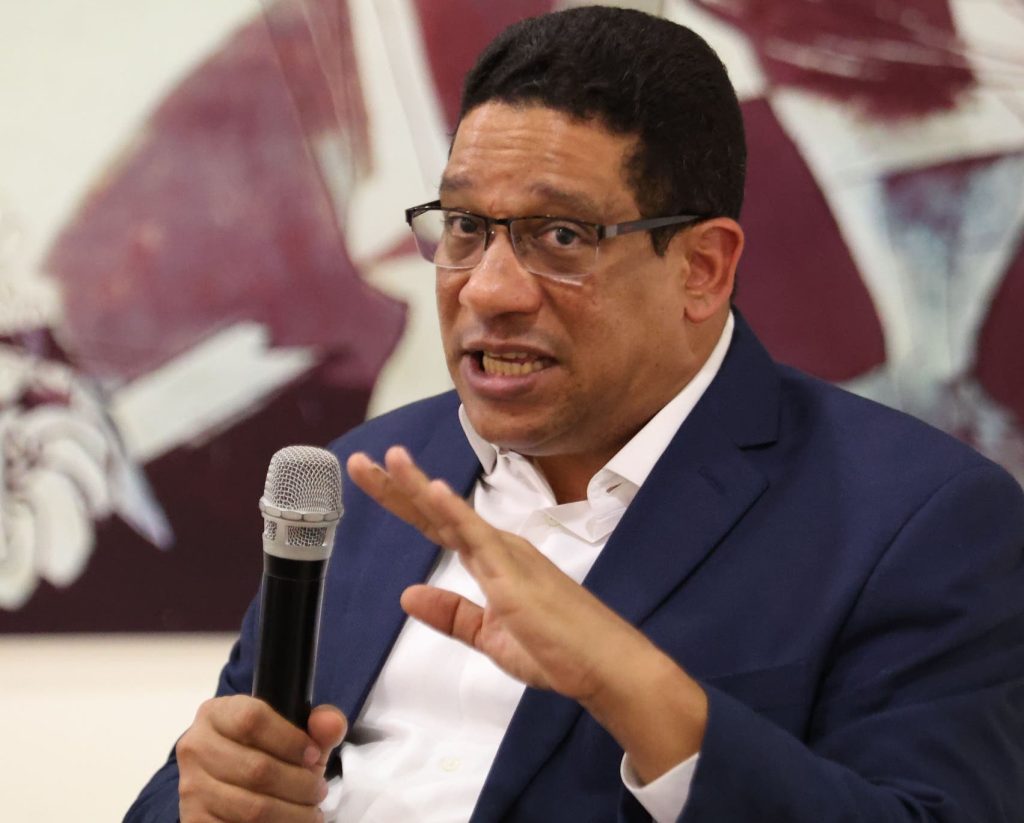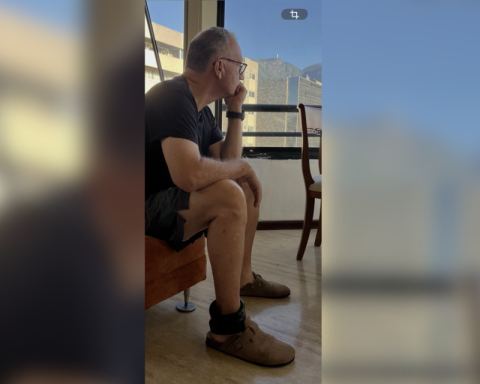He Ombudsman, Joshua Gutierrezpresented to the constitutional Court (TC) a claim of unconstitutionality against the Law on the Forfeiture of Assets (Legislative Decree 1373), a rule that has allowed the State to recover assets acquired as a result of illicit activities (corruption, illicit drug trafficking, illegal minery, money laundering, criminal organization, kidnapping, extortionamong other crimes).
The rule was enacted on August 4, 2018, so the deadline to challenge its constitutionality before the TC It was due to expire on August 4, 2024. However, two days before that date, on Friday, August 2, Gutierrez the claim of unconstitutionality was filed.
Claim of unconstitutionality against the law on the extinction of domain.
According to the document obtained by The Republicthe defender considers that some articles of the Law on the Forfeiture of Assetssupposedly, violate the property rights and the principles of typicality, presumption of innocence, non-retroactivity of the law and legal security.
Specifically, Gutiérrez seeks to declare the unconstitutionality of sections 2.1, 2.3, 2.4, 2.5, 2.9, 3.10 of article II of the Preliminary Title and articles 7.1.b, 7.1.f, 31.2, 32, 34 and 44 of the law.
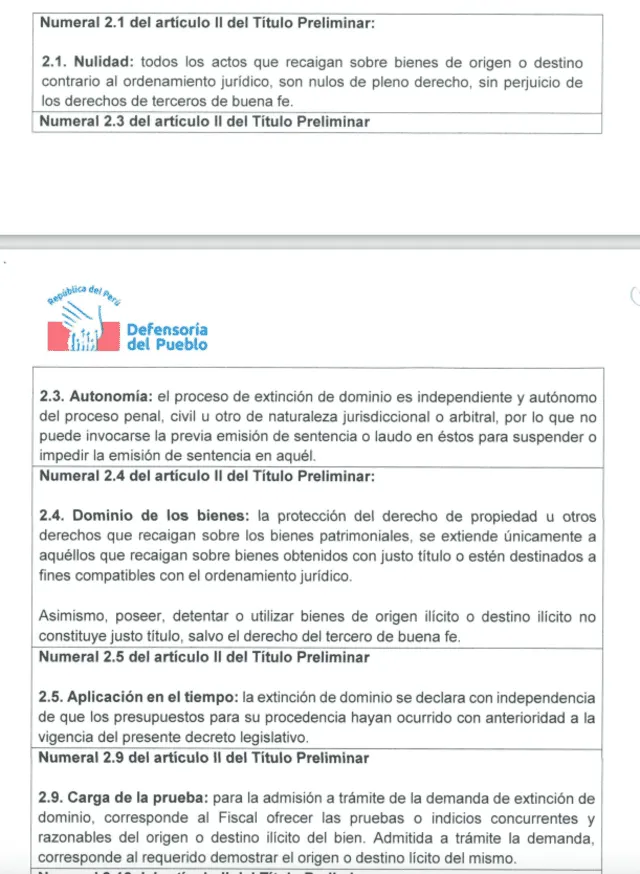
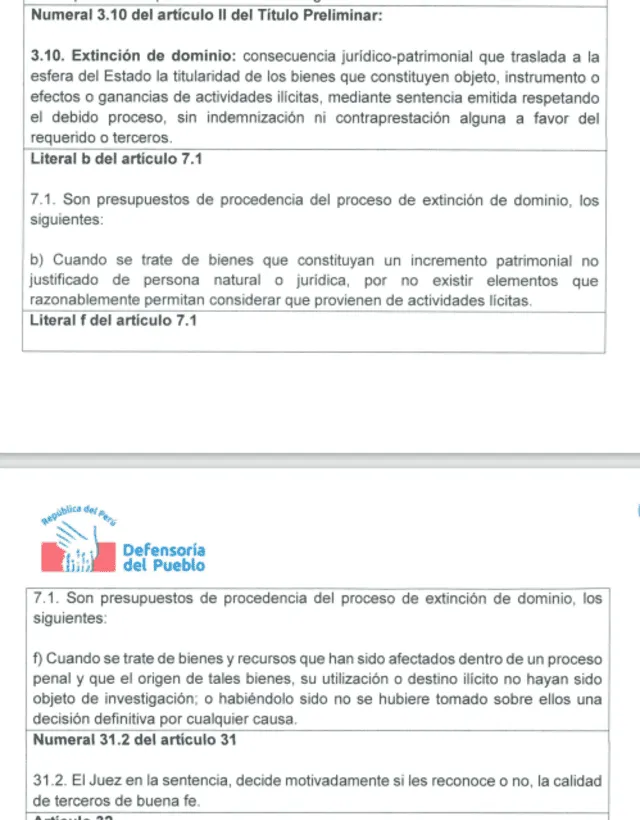
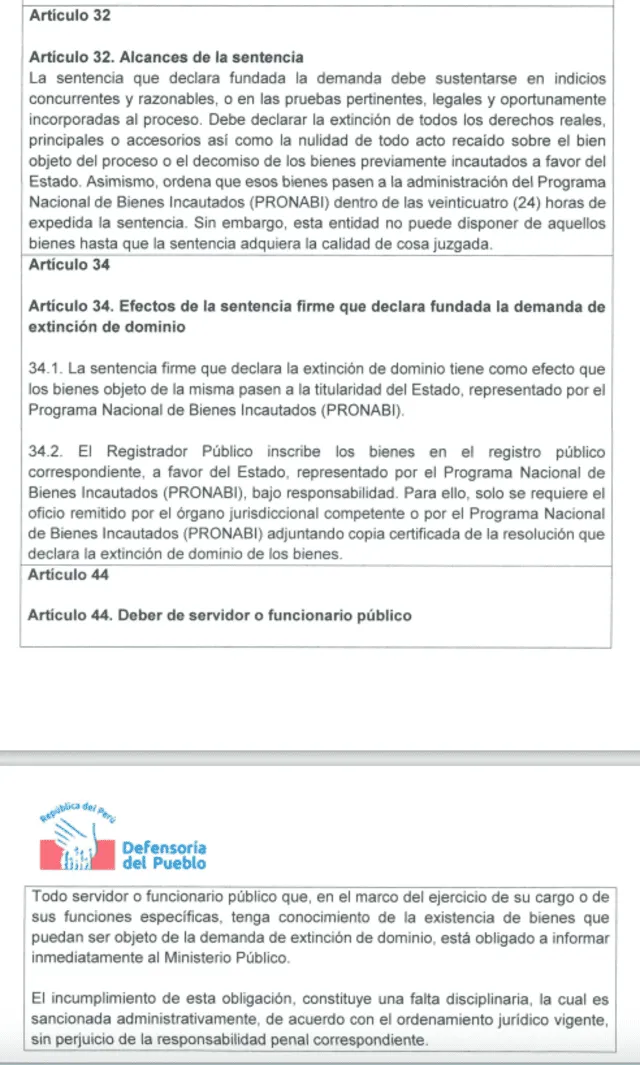
The defender maintains that the norm implies an alleged “serious affectation” to the right of property since “people are not being deprived of exercising any of its attributes (of the property), but all of them, and permanently.”
Gutierrez It also questions the fact that the system of domain extinction has been reformed through a legislative decree of the Executive, when, according to the jurisprudence of the TC, “any restriction on fundamental rights can only be carried out through an act of Congress.”
“The above reflects a constitutional guarantee for the restriction of fundamental rights, since not every act, decision or measure dictated by the State constitutes a valid limit. Minimum formal conditions are required to invade the subjective sphere of rights that belong to people due to respect for their dignity,” the document reads.
Proportionality
For him OmbudsmanThe rule also fails the proportionality test because it “becomes unnecessary and disproportionate.” Gutierrez He argues that the rule is not necessary because “a person under investigation cannot be deprived of his property” “without his responsibility having first been determined by the judicial authority.” This interpretation conflicts with the way in which asset forfeiture processes are carried out.
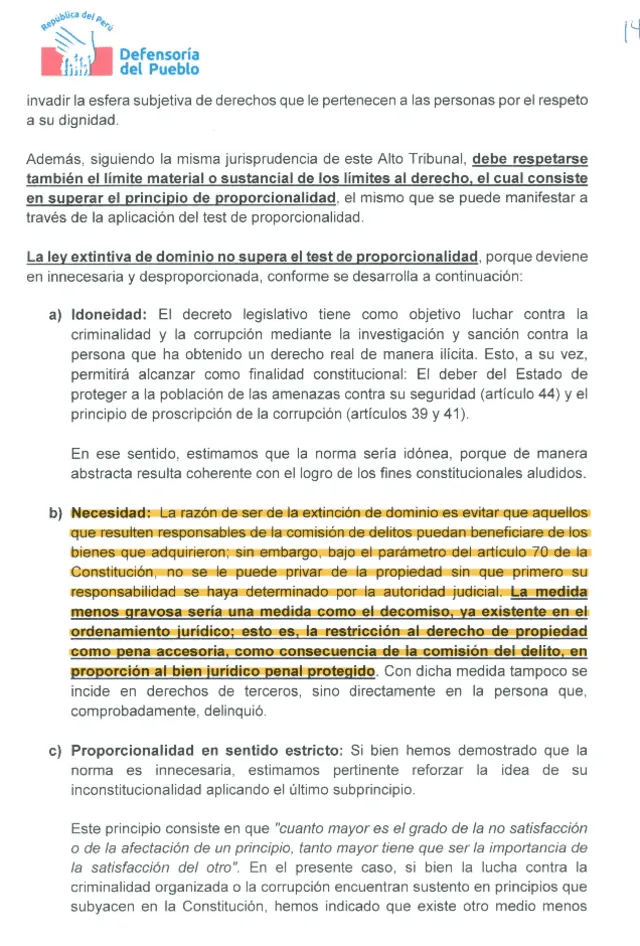
To date, these processes are independent of the criminal process. That is, it is enough to prove that the property was acquired illegally in order to proceed with the termination of ownership. It is not necessary for the person under investigation to have a conviction.
“The least burdensome measure would be a measure such as confiscation, which already exists in the legal system. (…) This measure does not affect the rights of third parties, but rather directly affects the person who has been proven to have committed the crime,” the defense attorney proposes in his claim.
Besides, Joshua Gutierrez He argues that the rule contains “open and generic concepts.” He even believes that the processes of domain extinction violate “seriously” the presumption of innocence and the right to property because they are based on “indications and mere suspicions”, and “they do not require a prior sentence that determines the guilt of the person under investigation”.
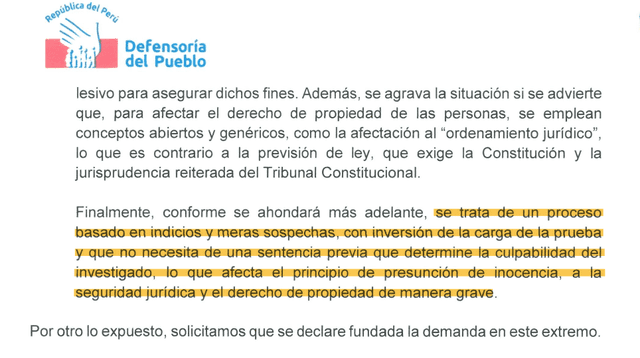
The senior official overlooks the fact that there is a whole specialized subsystem at the national level with prosecutors, judges and attorneys dedicated exclusively to cases of domain extinction.
Presumption of innocence
The complaint broadly develops the arguments regarding the alleged violation of the presumption of innocence. For example, it says that the Domain Extinction Lawby establishing that it is up to the person under investigation to prove the lawful origin of the property or his assets, is reversing the burden of proof.
“The presumption of innocence implies that the burden of proof falls on the State, and not on the accused, to prove guilt beyond a reasonable doubt. This is essential to ensure that sanctions are only imposed on those who are proven guilty in a judicial process with all the guarantees of due process,” the lawsuit reads.
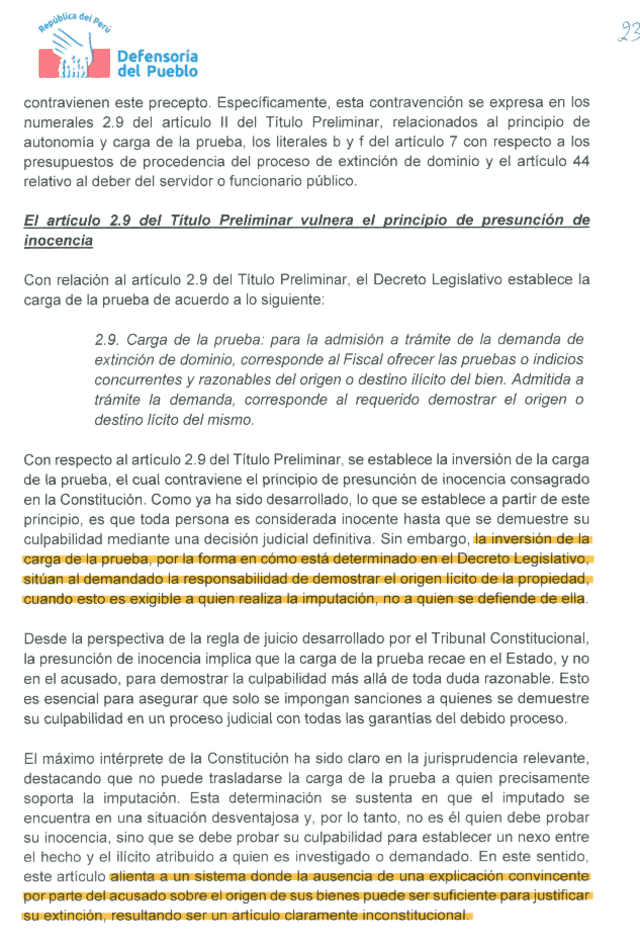
Thus, Gutierrez He claims that the law promotes a system where “the absence of a convincing explanation” about the origin of a property is sufficient to extinguish its ownership, which in his opinion is “clearly unconstitutional.”
The presumption of innocence is also affected, according to the lawsuit, by the article of the Domain Extinction Law which stipulates that every public servant or official is obliged, under his or her own responsibility, to immediately inform the Prosecutor’s Office if he or she has information about assets with an alleged illicit origin.
This same article, they claim, would lead to unnecessary complaints being filed for fear of possible sanctions, which would generate an overload on the Prosecutor’s Office.
Non-retroactivity
The last point developed in the lawsuit is about the alleged violation of the non-retroactivity of the rules. Here, the article that establishes that the extinction of the domain will proceed even if the illicit acquisition of the property took place before the law came into force is questioned.
Even the Ombudsman claims that the Government of Martin Vizcarrawhen issuing the law on the extinction of domain, attempted to conceal the “flagrant violation of the Constitution.”
It turns out that the Peruvian law is inspired by the Model Law on Asset Forfeiture of the United Nations Office on Drugs and Crime. The defender compares two almost identical articles from both texts, except for the title. While in the Model Law it is titled “Retroactivity”, in the Peruvian law it was called “Application over time”.
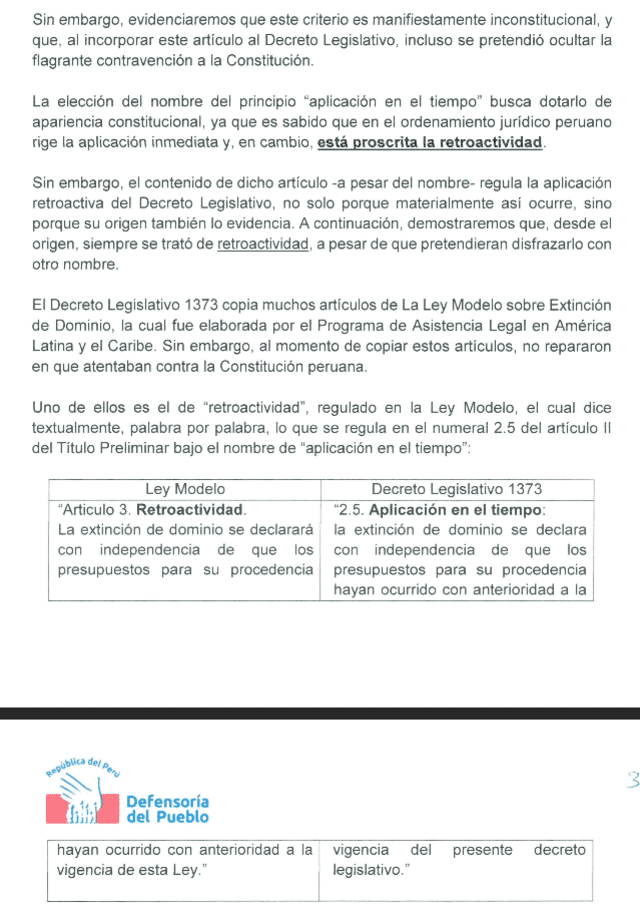
The attached
Although the Ombudsman filed the claim of unconstitutionality, the person in charge of carrying out the process will be the deputy in constitutional affairs, Elizabeth Zea.
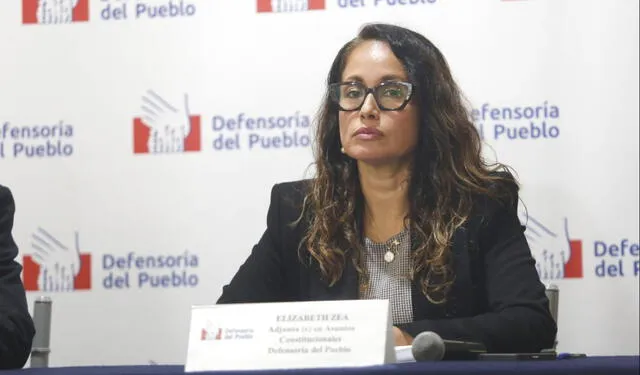
Elizabeth Zea, deputy for constitutional affairs at the Ombudsman’s Office.
Reactions
In dialogue with The Republicthe criminal lawyer Andy Carrion He agreed with much of the claim of unconstitutionality due to an alleged violation of the presumption of innocence and right to propertyHowever, he considered it “radical” to try to “try to overthrow” the law.
Along these lines, he considered that Congress “has been more cautious,” referring to the opinion approved in committee which adds the terms “delinquent” and “penal” to the definition of illicit activity in a forfeiture process.
“Even they have been more reasonable within the assumptions of reform. They said: ‘Ok, the law of domain extinction must remain in force, but let us specify that it refers to a criminal illegality’. But what the Ombudsman’s Office is doing is much more radical. Congress has been much more cautious, although in the end they did not reach any agreement,” he declared.
On the other hand, the former attorney general Antonio Maldonado He stated that the demand for the Ombudsman It ignores the objective of asset forfeiture and contradicts the United Nations Office on Drugs and Crime Model Law on Asset Forfeiture.
Along those lines, Maldonado He stressed that the current law, although it can be improved, respects the principle of legality, protects the rights of third parties acting in good faith and safeguards procedural guarantees. He warned that the Ombudsman could be using the institution for other purposes.
